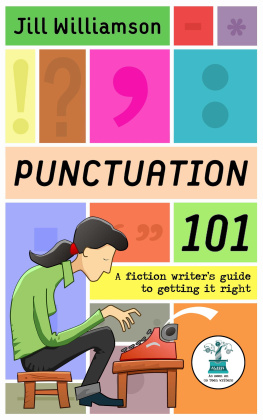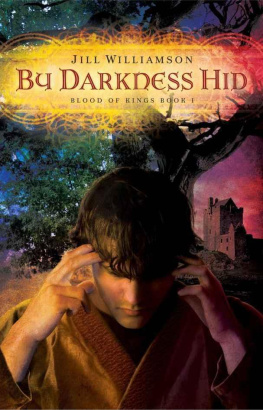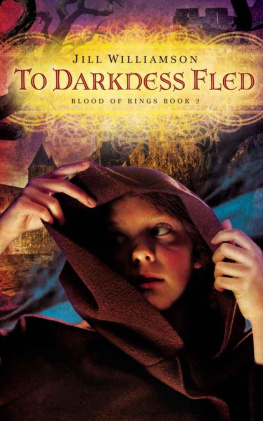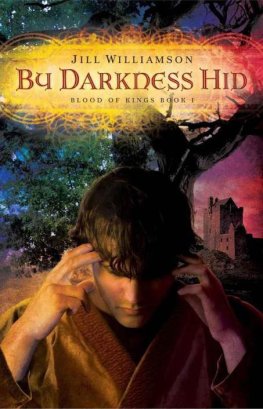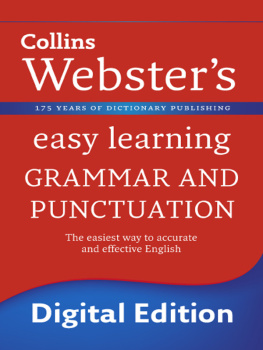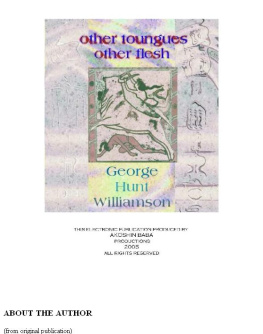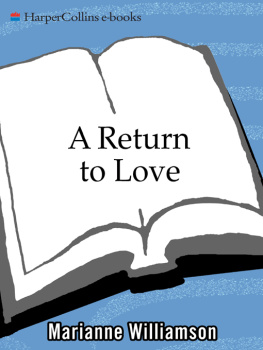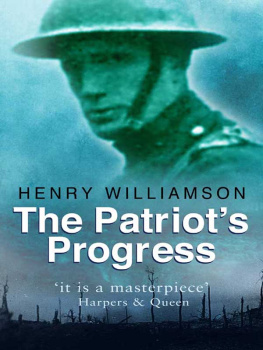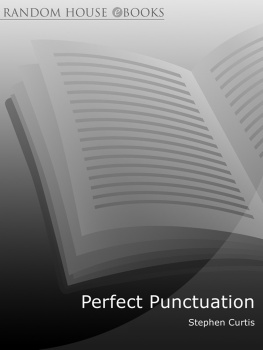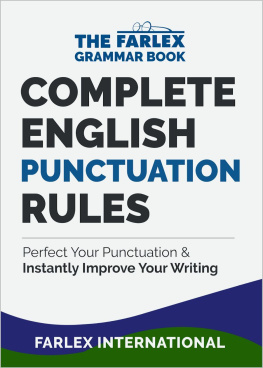Jill Williamson - Punctuation 101
Here you can read online Jill Williamson - Punctuation 101 full text of the book (entire story) in english for free. Download pdf and epub, get meaning, cover and reviews about this ebook. year: 2018, publisher: Jill Williamson, genre: Children. Description of the work, (preface) as well as reviews are available. Best literature library LitArk.com created for fans of good reading and offers a wide selection of genres:
Romance novel
Science fiction
Adventure
Detective
Science
History
Home and family
Prose
Art
Politics
Computer
Non-fiction
Religion
Business
Children
Humor
Choose a favorite category and find really read worthwhile books. Enjoy immersion in the world of imagination, feel the emotions of the characters or learn something new for yourself, make an fascinating discovery.
- Book:Punctuation 101
- Author:
- Publisher:Jill Williamson
- Genre:
- Year:2018
- Rating:4 / 5
- Favourites:Add to favourites
- Your mark:
- 80
- 1
- 2
- 3
- 4
- 5
Punctuation 101: summary, description and annotation
We offer to read an annotation, description, summary or preface (depends on what the author of the book "Punctuation 101" wrote himself). If you haven't found the necessary information about the book — write in the comments, we will try to find it.
Punctuation 101 — read online for free the complete book (whole text) full work
Below is the text of the book, divided by pages. System saving the place of the last page read, allows you to conveniently read the book "Punctuation 101" online for free, without having to search again every time where you left off. Put a bookmark, and you can go to the page where you finished reading at any time.
Font size:
Interval:
Bookmark:

To Deborah, Lisa, and Tracie for all your help.
INTRODUCTION
One of the hardest things for beginning writers to learn is how to get the story they see in their head out onto the pagethe same way they see it in their heads. This is a tricky art form called the craft of writing, and doing it well takes a lot of practice.
Punctuation marks are signals to readers that tell them when to pause or stop and when to change the inflection of a characters voice. Learning to use punctuation correctly will greatly improve your writing craft because written words alone cannot create volume, tone, or emotion. Correct punctuation will also guide your readers through your story so they can understand what you want to say and the way you want them to experience what you say.
Punctuation has never been one of my favorite subjects, but since I wanted to become a published (and professional) author, I needed to learn to do it right.
And so do you.
One mistake in your submission to a literary agent or editor wont likely get you rejected, but if your manuscript is filled with punctuation errors, an agent or editor wont keep reading. They will reject you.
If you want to be treated like a professional, learn what you need to learn to bear that distinction.
From 2011 through 2013, I wrote on the Go Teen Writers blog a series of posts titled Punctuation 101 . In each post, I tackled one punctuation topic and taught how it related to the specific craft of writing fiction. Some punctuation rules are different if you are writing screenplays or nonfiction articles for magazines or newspapers. This book wont help you with those mediums. This book is for writers of fiction.
This book also wont be 100 percent accurate to help you with a term paper, which most often reference MLA (Modern Language Association) style. Check with your teachers to see which style they want you to use for each assignment. Dont assume! If it will help you get a better grade, make your teachers happy by doing it their way.
But if you are writing a novel that you hope to publish in the United States of America, you should find everything you need to know about punctuation (and likely more) in this book. If youre looking to publish a novel in another country, I urge you to find the industry standard for that country.
If youre serious about writing fiction, I also recommend picking up a copy of The Chicago Manual of Style . Its the publishing industrys standard reference guide for works of fiction published in the USA. You dont have to buy the newest version, since the important rules have not changed in quite some time. Add the most recent used copy you can find to your wish list or take a peek at it the next time you visit your local library. Its a great tool to have on your shelf. Until then, this little book should tide you over.
Lets start punctuating, shall we?
Jill
PART ONE
What Every Fiction Writer Needs to Know
BREAKING THE RULES
This is a book of rules.
Boo, right?
Writing fiction should be fun and creative. Rules only bog down authors and stifle their creativity.
Not so.
The truth is, consistently using incorrect punctuation could keep you from being published by a traditional publishing house. And if youre an indie author, misusing punctuation will likely earn you some negative book reviews online.
Part of respecting your dream of being a novelist is learning the rules of the English language (or whatever language youre writing in), and that includes learning correct punctuation.
Once you learn the rules and understand them, youre welcome to break them if you have good reason. I do. Here are some ways that I consistently break the rules.
I love sentence fragments. Because theyre real. Theyre how people talk. But theyre incomplete sentences. Yet when I write fiction, I use sentence fragments all the time because I like to write in deep points of view that get inside characters heads.
I tend not to break punctuation rules very often, however, because punctuation is meant to be invisible. Its a guide to the reader, and I want readers to be able to smoothly navigate my novels without stumbling.
I have broken punctuation rules, though. One example is from my Mission League novels in which I show texts between two characters. Grace always misspells words and uses twenty exclamation points when she texts, and I felt it was important to show the reader what that looks like and how much it puzzles my main character.
This is a book of rules. Learn these rules and use them, but if you have a good reason to break a rule, go for it. And if any of these terms confuse you or I neglect to define something, dont just wonder, Google it. The internet is your friend when it comes to this subject.
There are a lot of punctuation marks out there. The fact that a type of punctuation exists is not reason enough for you to use it in your novel. Case in point, the section sign:
Punctuation is meant to be an invisible guide for the reader to navigate a group of words on a page. If your punctuation gets too fancy or veers too far from the norm, that unfamiliar symbol or oddball usage is going to pull your reader out of the story as they ponder what on earth its supposed to mean.
Pulling your reader out of the story is a bad thing. Novelists want readers immersed in their stories, turning pages until the wee hours of the morning. We want to entertain.
So keep things simple, and dont get fancy unless you have good reason. There is rarely a good reason to use an asterism, a section sign, or an interrobang in a novel.
Trust me.
SOME BASICS
You dont need to know every grammar term to write a great novel, but if Im going to teach you about punctuation, Im going to have to use some textbook words like subjunctive and appositive . This chapter is a need-to-know glossary of sorts to help you understand a few terms up front.
Sentence Types
Throughout this book, I will occasionally refer to different types of sentences. There are four sentence types in the English language:
Declarative
Imperative
Interrogative
Exclamatory
A declarative sentence makes a statement or expresses an opinion. A declarative sentence almost always ends with a period.
An imperative sentence gives a request or makes a command. Imperative sentences usually end in a period but sometimes end in an exclamation point.
An interrogative sentence asks a question and almost always ends in a question mark.
And finally, an exclamatory sentence expresses great emotion and often ends in an exclamation point.
Anything that isnt a complete sentence is a fragment.
What does set in Roman mean?
The phrase set in Roman simply means regular text that is not italicized, bolded, or anything out of the norm.
Whats the difference between Roman numerals, Arabic numerals, cardinal numbers, and ordinal numbers?
There are a lot of different ways to write numbers. Here is how it all works.
Roman numerals are letters that represent numbers as part of the Roman numerical system. They are I for 1, V for 5, X for 10, L for 50, C for 100, D for 500, and M for 1,000.
Arabic numerals replaced Roman numerals during the middle ages. They are 0, 1, 2, 3, 4, 5, 6, 7, 8, 9.
Cardinal numbers denote quantity. They can be spelled out (one, two, three, seventy-eight) or written in numeral form (5, 86, 249).
Ordinal numbers define somethings place in a series (first, second, third, fifty-ninth).
What is a clause?
A clause is a group of words that contain a subject and a verb. Clauses that can stand on their own are called independent or main clauses. Clauses that cannot stand on their own are called dependent or subordinate clauses. A dependent clause depends on the rest of the sentence for meaning.
Font size:
Interval:
Bookmark:
Similar books «Punctuation 101»
Look at similar books to Punctuation 101. We have selected literature similar in name and meaning in the hope of providing readers with more options to find new, interesting, not yet read works.
Discussion, reviews of the book Punctuation 101 and just readers' own opinions. Leave your comments, write what you think about the work, its meaning or the main characters. Specify what exactly you liked and what you didn't like, and why you think so.

